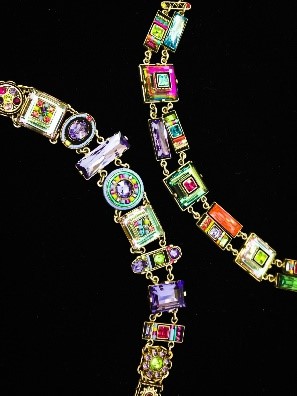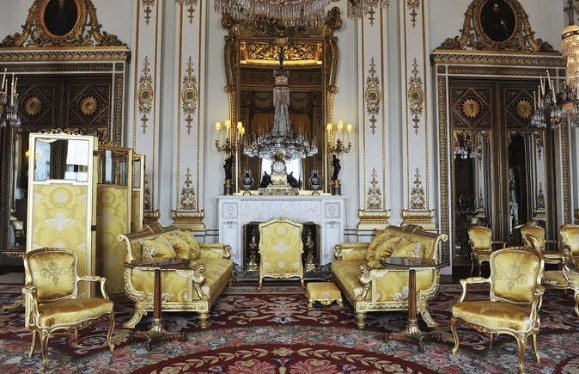In this episode I am reflecting on Opulence, triggered by recent reports on social media of lifestyles of some of our leaders. Opulence is the embodiment of luxury and grandeur, characterized by an extravagant display of wealth and splendor. It generally manifests in surroundings that add no value to physical comfort but merely a show of relative wealth. We judge lifestyle as being opulent relative to what would be regarded as normal.
Opulence is not just about material wealth; it symbolizes a lifestyle where comfort and indulgence are supreme. It reflects an environment where expense seems not to be spared to create an atmosphere of excesses of pleasure.
I have no problem with opulence per se if it is built with resources acquired honestly either through hard work or otherwise. I also can live with opulence next door if it is not annoyingly paraded around. Unfortunately, most of the opulence we see is exhibited by people who cannot explain the way they rose from rags to riches.
Opulence, characterized by excessive wealth, luxury, and extravagance, can sometimes conflict with social norms in societies where wealth inequality is a sensitive issue. In those societies, displays of opulence is a sign of insensitivity and being out of touch with society. Such displays can lead to resentment and social disruption.

Flaunting wealth is seen as arrogance and, in situations where there is deep social mistrust, it can lead to a breakdown of social cohesion. Opulence can violate moral standards, conflicting with fitting expectations, often leading to social tensions and negative perceptions. In certain social contexts, luxury spending might be perceived as corrupt, especially if it comes at the expense of other people’s well-being. It can create divisions among social classes or groups, weakening the sense of shared identity and common purpose. We live with obscenely unrestricted spending by government officials and public figures demonstrating behavior that is insensitive to the needs of the larger population undermining social expectations of responsibility and fairness.
In politically charged environments, excessive wealth in the hands of a few people in control of the political and social lives of the majority, can lead to perceptions of corruption or elitism. This is particularly true when social justice and equality are key political concerns. Under these conditions it is not surprising to have bursts of tension between wealthy elites and the common population.
Ethical standards are a set of principles that guide behavior and decision-making based on notions of right and wrong. These standards established by organizations or individuals serve as a framework for promoting trust, integrity, and accountability. They cover qualities such as honesty, compassion, and loyalty, as well as differentiation between rights and wrongs.
Ethical standards often align with public trust and perception. When individuals or businesses lose sight of ethical standards displaying their wealth as a show, they may lose public trust, especially if there are underlying suspicions of corruption, greed, or illegal activities. The expectation that wealth should be earned fairly and used responsibly is a must in all societies. A public official with unexplained opulent wealth is easily accused of corruption or unethical behavior, provoking public outrage.
When individuals or corporations indulge in extreme opulence while others in society face poverty with unmet basic social needs, even when no law is broken, it can be perceived as morally wrong. In this context, ethical standards rooted in fairness and social justice are violated. The extravagant consumption of luxury goods by a few, especially those in political leadership, highlights social and economic degeneration. Corporations can mitigate impression of opulence through Corporate Social Responsibility (CSR) and philanthropy by investing profits into communities or contributing to causes that address social issues.

Appearances can be important. Perception of opulence may give the impression that wealth is being generated through unethical use of resources or exploitation. This reminds me of the musing I made on “Hooks and ladders”. In conclusion to that episode, I wrote: “While there will always be opportunities for people pulling and pushing us up the ladder, and we should do the same for others, we should be mindful of people using us as steppingstones for their selfish ambitions”. In other words, exploited. Companies or individuals with significant resources may be seen as morally responsible for ensuring that their wealth is not achieved at the cost of workers’ rights, or environmental and social degradation. Wealth creation per se is not bad so long as it is made legally and not at the expense of society and environment.
Cultural attitudes toward opulence vary widely depending on historical, religious, social, and economic factors. While some cultures embrace luxury as a sign of success and personal achievement, others encourage restraint, modesty, and a focus on community welfare. These differences highlight how opulence is deeply embedded in the values and ethics of a particular society.
In our African cultures, wealth is closely tied to social responsibilities and community ties. Well-off individuals are often expected to share their success with extended families and contribute to communal social developments, such as building schools or funding local projects. Failure to do so can lead to social alienation or accusations of selfishness. The public accepts displays of wealth when balanced by these cultural expectations of generosity and social development.
In European and north American societies wealth and success are regarded as individual achievements. Opulence, or displays of luxury, is accepted as a reward for hard work. Billionaires or successful entrepreneurs are often glorified for their ability to amass and display wealth through lavish lifestyles.
In some north European countries, such as Sweden, Norway, and Denmark, social norms emphasize equality and modesty. Despite high levels of wealth, public displays of opulence are often discouraged, and there is a strong cultural expectation to maintain moderate standards. Wealthy individuals often lead relatively modest lifestyles and focus on social welfare rather than personal luxury.
Eastern cultures, such as those in China or Japan, place higher values on humility, modesty, and community well-being. Despite the changing wealth patterns in those countries, the underlying, traditional Confucian or Buddhist values advocate for restraint and self-discipline with respect to displays of wealth. In Japan, excessive displays of wealth may be viewed as inappropriate or boastful, clashing with cultural expectations of humility and emphasis to avoiding wastefulness and encouraging modest living.
In low-income countries, where large populations may live in relative poverty, extreme displays of wealth are viewed negatively. Here, opulence is seen as morally wrong, insensitive, or even corrupt, especially if wealth is concentrated in the hands of a few elites. In such contexts, there is often social pressure to use wealth to improve community welfare rather than for personal indulgence. Unfortunately, these pressures are often ignored or suppressed by the ruling elite. Lavish weddings and extravagant spending on social events, especially considering stark poverty and inequality, is regarded as obscene by the general population.
While many religions promote values of simplicity, charity, and detachment from material wealth, yet one often sees lifestyles which are contrary to what is preached. In such contexts, opulence is morally wrong, corrupting and conflicting with norms that encourage generosity and spiritual well-being over material indulgence.
In many Muslim-majority countries, religious teachings influence how wealth is viewed. Islam encourages wealth creation, but also emphasizes charity (zakat) and social responsibility. While wealth itself is not discouraged, extreme displays of opulence can be seen as sinful, if the needy or community are neglected. The cultural expectation is often to balance personal success with contributions to societal well-being. Where opulence exists, it is tempered by philanthropy and community support.
There are many commentaries on wealth, poverty, opulence in relation to Christianity. Christians who emulate the life of Jesus frown over opulence seeing that although Jesus was relatively poor, he was never in material need and was in sympathy with the poor but at the same time comfortable among the rich and elite. Jesus preached looking after the needy as seen in Matthew 25:34–40.
Jesus tells his disciples, who were not rich, that wealth can be a spiritual stumbling block in Matthew 19:23 in the parable of a rich man and the eye of a needle.
Jesus tells his listeners not to store their treasures on earth but in heaven. In other words, not to focus their lives on perishable earthly material but on spiritual enrichment (Matthew 6:19–21). Caring for the poor is central to Christian life with a warning that love of money is the root of all evil.

While opulence is a personal choice of expression of wealth and success, it can conflict with social norms, particularly when ethical expectations such as fairness, responsibility, and modesty are at stake. The ethical tension stems from the public’s suspicion that the flaunted wealth is not honestly acquired. There are no laws against opulence, but the public would want to see national wealth used to promote social welfare, reduce inequality, and general development and better living conditions for all. I find the Rotary ethical guide for personal and professional relationships, the Four-Way Test apt when musing over opulence. Flaunting riches and extravagant living at the expense of society in general. The guide is for truth, fairness to all concerned, building goodwill and better friendships and being beneficial to all concerned.
Thank you for being part of the Fork in the Road Blogs: Reflections on Life. Be sure to look out for the next episode when I will be writing about Listening. If you gathered something useful, please feel free to share the blog. My books, Fork in the Road: Creating a future of value starting from where you are and A view round the bend. Setting goals for your life’s journey are available for purchase at Aristoc bookshops in Kampala, Uganda and online at Amazon.
Your comments on my musings are most welcome and let me know whether there is a topic you would like me to muse over.


Comments (6)
Honest Herbert Kakiiza
Thank you for sharing PP Stephen.Well thought and researched piece-As Always.
Opulence by any standard is sub human.
Blessings
Rtn Stephen
Absolutely Rtn Herbert.
Shem Nnaggenda
That ..”The expectation that wealth should be earned fairly and used responsibly is a must in all societies” is no longer the norm. Recent world events.. the wars in Europe, Middle East, the elections in he US, support the notion that one’s ” right” is not universal, and that hypocrisy is universal. Thanks for sharing.
Rtn Stephen
This is a sad turn of events, Rtn Shem but we should not sit back and accept it. The universality of human rights and custodial honesty with public resources are non-negotiable. Reflect on how far all this can go and what we (the “good” people) can do to change the tide.
Robert Yiga
Wow, I can’t stop reading these blogs, so many public officials can’t explain their wealth. You see people in authority who are in a total disconnect from society.
Robert Yiga
A must read blog for our people in positions of authority